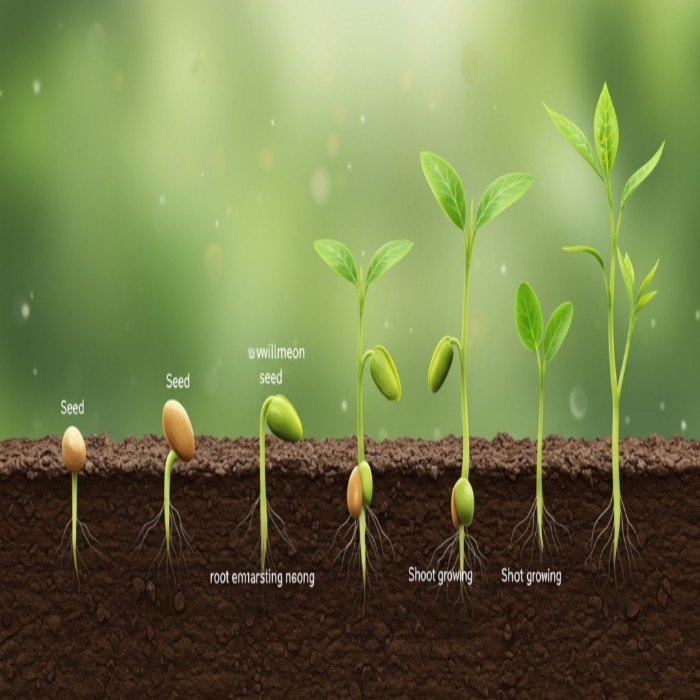Understanding the Process of Germination
Discover how long does it take for seeds to germinate, as germination times can vary from a few days to months based on seed type and conditions. Germination is the stage when a seed starts to grow into a plant. This stage begins when the seed absorbs water and activates the growth process. The time required for germination differs according to seed type and growing conditions. Some seeds sprout within a few days, while others take weeks. Knowing the basic process helps gardeners plan more effectively. When you ask how long does it take for seeds to germinate with quick hacks, the answer depends on seed type, soil, water, and temperature.
Factors That Affect Seed Germination
Several factors influence the germination timeline of seeds. Temperature plays a vital role in triggering growth. Warm soil speeds up the process for most seeds, while cold soil delays growth. Moisture levels also decide how quickly a seed swells and breaks the coat. Adequate oxygen supply supports root development during early stages. Light exposure impacts certain seeds that need direct light to sprout. Each factor works together to decide the actual germination period.
Average Time for Seed Germination
Different seeds germinate at different rates depending on their nature. Lettuce and radish seeds sprout within three to five days. Tomato and pepper seeds take about seven to ten days. Some herbs like rosemary take up to three weeks. Trees and woody plants may take several months. Therefore, the average time ranges between three days to four weeks. When gardeners apply quick hacks, they shorten the average timeline. With the right approach, seeds sprout faster and grow stronger.
Quick Hacks to Speed Up Germination
Several practical hacks make germination faster and more reliable. Seed soaking is one of the easiest methods. When you soak seeds in warm water for 12 to 24 hours, the seed coat softens. This speeds up water absorption and helps quicker sprouting. Scarification is another method where you gently scratch or nick the seed coat. This process allows water to penetrate more easily. Using a germination mat creates consistent warmth that encourages faster growth. Moist paper towel methods also work effectively for small seeds. These hacks reduce waiting time and improve germination success.
Preparing Soil for Faster Results
Soil preparation is crucial when you want seeds to germinate quickly. Well-drained soil prevents waterlogging and supports better oxygen flow. A balanced soil mix with compost enriches the medium with nutrients. Loose soil texture allows roots to spread freely and absorb moisture faster. Consistent moisture in soil helps seeds stay hydrated during early growth. Using organic matter such as coco peat increases water retention. Proper soil preparation ensures that seeds sprout without delays. Gardeners who prepare soil carefully observe faster germination rates.
Best Practices to Maintain Germination Speed
Maintaining germination speed requires continuous care and attention. Gardeners must monitor soil moisture regularly without overwatering. Proper spacing of seeds avoids overcrowding and allows airflow. Covering seed trays with plastic wrap retains humidity. Removing covers after sprouting prevents fungal growth. Adequate light supply is important once seedlings emerge. Indoor gardeners often use grow lights to provide stable light exposure. Outdoor gardeners must ensure seeds receive the right balance of sunlight and shade. Consistent care ensures faster sprouting and healthier seedlings.
Conclusion on Quick Hacks for Germination
Gardeners always wonder how long does it take for seeds to germinate with quick hacks. The truth is that germination speed depends on seed type and growing conditions. However, by applying simple hacks like soaking, scarifying, and warming the soil, results appear faster. Proper soil preparation and consistent care further improve the success rate. With these methods, gardeners reduce waiting time and enjoy quicker harvests. Patience is important, but smart techniques make the journey easier. By using these quick hacks, any gardener enjoys healthier plants and faster growth.







